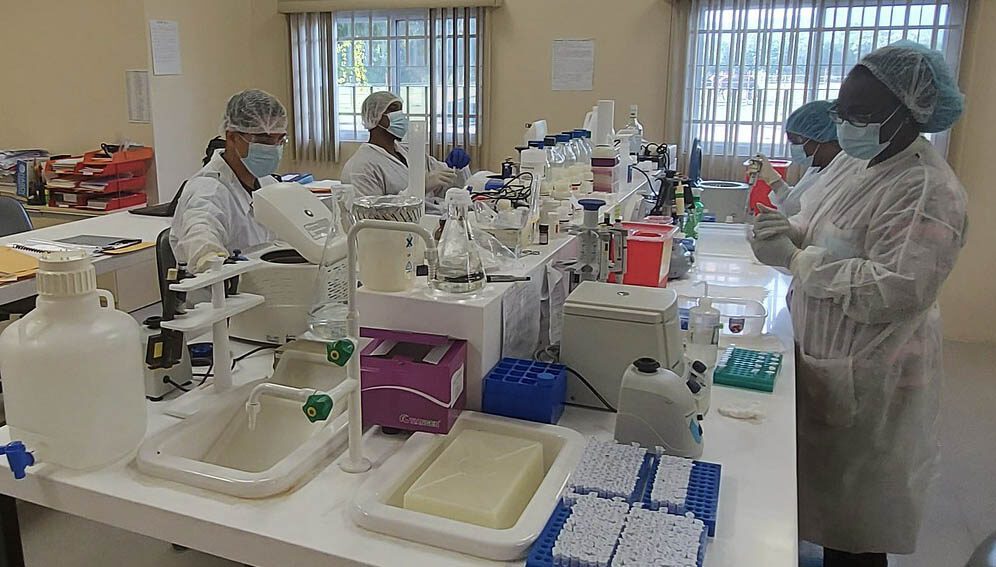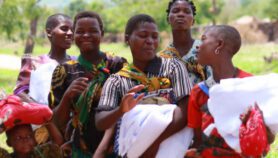14/10/21
Diagnostic tech ‘out of reach’ as rich few dominate market

By: Sanjeet Bagcchi
Send to a friend
The details you provide on this page will not be used to send unsolicited email, and will not be sold to a 3rd party. See privacy policy.
[NEW DELHI] Less than a fifth of the population of developing countries have access to basic diagnostic tests for some of the most common diseases, amid a lack of trained staff and inequitable access to equipment, a report published in The Lancet shows.
Despite “extraordinary innovations” in diagnostics in the past decade, investment in this area of medicine is lacking and new technologies remain out of out of reach for many countries, The Lancet Commission on Diagnostics found.
Just four companies in the US and Europe account for half of the global supply of in vitro diagnostics — testing of samples taken from the body — and the same number from the US, Europe and Japan account for three-quarters of the global supply of imaging equipment, the report said. New sources of financing are needed to expand access to effective and affordable diagnostics in low- and middle-income countries (LMICs), it added.
“Without timely accurate diagnostics, medicine is largely blind. This has major socio-economic impacts as it leads to poorer outcomes for patients and their families.”
Kenneth Fleming, chair of The Lancet Commission on Diagnostics
Susan Horton, professor of global health economics at the University of Waterloo, Canada, and deputy co-chair of the Commission, said the COVID-19 pandemic had exposed the risks of relying on a small number of medical suppliers.
“Expanding the production of diagnostics by locating more research, development and production in low- and middle-income countries is a key priority,” she said.
The Commission found that 47 per cent of the world’s population had “little or no access” to diagnostic tests for diseases including diabetes, hypertension, HIV, and tuberculosis, or to basic tests for syphilis and hepatitis B infection in pregnancy.
In LMICs, at the primary healthcare level, only 19 per cent of the population had access to the “simplest of diagnostic tests” for the most common diseases, with the exception of HIV and malaria, the study said.
“People who are poor, marginalised, young, or less educated have the least access to diagnostics,” the Commission said in a report by experts from 16 countries.
A reduction in the diagnostic gap — the proportion of population with an undiagnosed disease or condition — from between 35 and 62 per cent to ten per cent for diabetes, hypertension, HIV, tuberculosis, and both syphilis and hepatitis B infection in pregnancy, could reduce premature deaths by 1.1 million each year in LMICs, the report added.
It said training and education for healthcare workers was key to closing this gap and addressing the estimated global shortfall of up to one million diagnostics staff.
Horton told Scidev.Net that the Commission was established to advocate for the importance of diagnostics in universal health coverage.
Diagnostic tests range from blood, tissue, or urine-based tests, to diagnostic imaging such as x-rays, ultrasound, MRI and CT scans. Lack of access to such tests inevitably leads to poorer access to healthcare and timely treatment.
“The headline finding is that almost half of the world’s population has little to no access to diagnostics, and this has adverse consequences for health — more deaths — and the economy — more impoverishment due to illness,” said Horton.
Without access to diagnostic tests, international health priorities like universal health coverage, preparedness for pandemics and reducing antibiotic resistance cannot be met, the Commission warned.
Kenneth Fleming, Commission chair and an emeritus fellow at the University of Oxford, UK, said: “Without timely accurate diagnostics, medicine is largely blind. This has major socio-economic impacts as it leads to poorer outcomes for patients and their families, with unnecessary time off work and school and scarce resources wasted on the wrong condition.”
The Commission noted two lessons it said had been learned from the COVID-19 pandemic. “One early lesson was the crucial importance of timely accurate diagnosis. A second lesson was the widespread scarcity of such diagnostic capacity and capability,” the report said.
According to Horton, people worldwide are now more aware of the importance of testing, as a result of the pandemic. She says that advances such as point-of-care tests and digitalisation provide opportunities to bring diagnostics to currently underserved populations.
“Emphasising diagnostics will help bring us closer to achieving the [UN] Sustainable Development Goal for health,” she added.
Lawrence Gostin, professor of global health law at Georgetown University, Washington DC, told SciDev.Net that most health conditions could be prevented or treated with early diagnosis, while weak diagnostic capacity increased rates of hospitalisation and deaths and contributed to antimicrobial resistance, one of the biggest threats to global health.
“The solution [for this issue] is sustainable investment in primary health and strong health systems,” said Gostin, adding that governments should prioritise health in their national budgets and international assistance should focus on strengthening health systems.
Fleming added: “We recommend that countries develop specific strategies for better provision of diagnostics particularly in primary care, based on drawing up a list of essential diagnostics that would ensure that every level in the health care system has the diagnostics appropriate for the disease burden in that country.
“We also recommend that there is a major international effort to bring these issues to the attention of the funders and decision-makers so that sustainable long-term solutions are adopted both internationally and nationally.”
However, Thekkekara Jacob John, retired professor and head of the department of clinical virology at Christian Medical College, in Vellore, India, said that pushing diagnostics alone was “only a band-aid [sticking plaster] — essential, [but] not sufficient as the real solution”.
He stressed the importance of teaching healthcare professionals about scientific thinking and evidence-based decision-making, adding: “People learn what is taught. If nothing is taught, they will seek answers from their own cultural worldview.”
This piece was produced by SciDev.Net’s Global desk.














